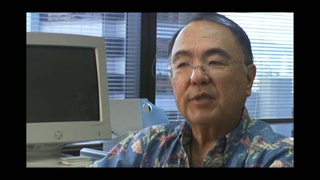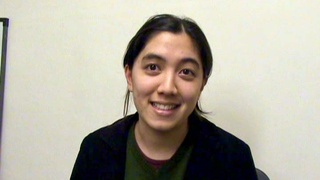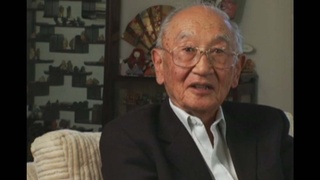Interviews
Being multicultural before it was “in”
In that way, I think we were very Japanese. We were brought up with no religion. My parents, my mom was actually pretty adamant about it and said, “Take a look around…” And I learned from her that religion, it’s a learned thing. It’s not something that’s born inside of you. She instilled a sense of morality in me, but she didn’t push any one religion on me. I guess growing up back east, especially since the area was fairly conservative, I had some of that influence from my friends. But at the same time, it’s pretty varied. When I was in junior high school, I was in a band, and there was myself, a Jewish guy who played the keyboard, there was a Roman Catholic guy who played the guitar, a Black Baptist drummer and there’s a Hawaiian bassist. So we were the multicultural crew before multicultural was in. One weekend, we would play in a synagogue and the next we’d play at a church, and the next week, a Baptist church.
Date: September 12, 2003
Location: Tokyo, Japan
Interviewer: Art Nomura
Contributed by: Art Nomura, Finding Home.
Explore More Videos

Disadvantages of looking Japanese
(b. 1967) Hawai`i-born professional fighter in Japan




A wrong ethnic assumption
Senshin Buddhist Temple minister and co-founder of Kinnara Taiko.

Mixed blood people at camp from a child's point of view
(b. 1934) Writer


Being accepted as biracial family
(b.1944) Founder of Kobayashi Group, LLC


The importance of learning cultural diversity (Spanish)
Sansei Argentinean

To think in one language and live in another (Spanish)
Sansei Argentinean

Appreciation of Japanese food
Sansei Japanese American living in Japan and Kendo practioner

Common Grounds
(1919-2020) Member of the 1800th Engineering Battalion. Promoted Japan-U.S. trade while working for Honda's export division.
